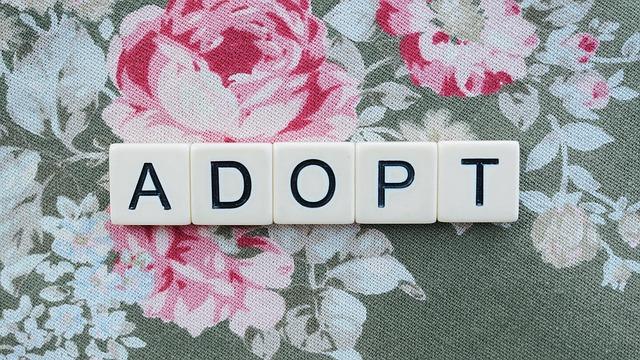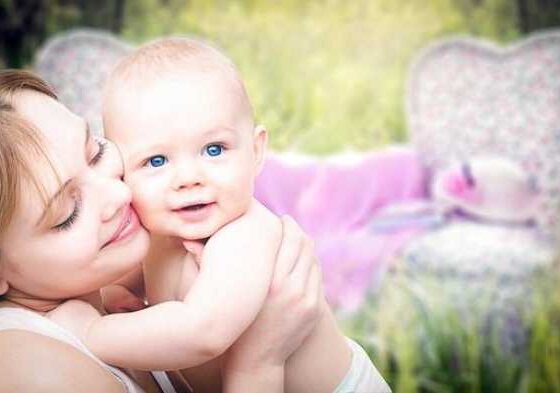Thinking about baby adoption? Whether you’re just starting to explore the idea or seriously considering growing your family this way, there’s a lot to think about! Adoption can be an amazing, life-changing experience, but it also comes with its own unique set of questions and challenges. In this post, we’ll walk you through the essentials-from the different types of adoption to what to expect during the process-so you can feel confident and informed every step of the way. ready to dive in? Let’s get started!
Understanding the Different Types of Baby Adoption and What They Mean for You
When it comes to baby adoption, it’s helpful to know that there are several different paths you can take, each with its own unique features.Such as, open adoption allows birth parents and adoptive parents to share facts and maintain contact over time, fostering an ongoing relationship. on the other hand, closed adoption keeps all parties’ information confidential, giving everyone privacy and a clean slate. Then there’s semi-open adoption, which blends the two by facilitating dialogue through a trusted intermediary while keeping identities private. Understanding these distinctions can ease a lot of anxiety and set realistic expectations.
Here’s a quick overview of how adoption types can influence your experience:
- Open Adoption: Regular updates, possible visits, and emotional connections.
- Closed Adoption: Complete privacy, no contact or exchanges after placement.
- Semi-Open Adoption: Anonymous updates via a mediator, some communication allowed.
| Adoption Type | Contact Level | Privacy |
|---|---|---|
| Open | Direct and ongoing | Low |
| Closed | None | High |
| semi-Open | Indirect through agency | Moderate |

How to Start the Adoption Process Without Feeling Overwhelmed
taking the first step in adoption can feel like a maze,but breaking it down into manageable parts makes a huge difference. Start by researching different adoption types-like domestic, international, or foster care-so you know what fits best with your lifestyle and expectations. Remember, there’s no “one size fits all,” and taking your time to learn means less stress down the line. Gathering information from trusted sources such as adoption agencies, support groups, and experienced adoptive parents helps you feel empowered rather than overwhelmed.
Next, organize your next moves with a simple checklist. Consider the following to get started:
- Set clear personal goals: Why do you want to adopt and what kind of family setup are you envisioning?
- Reach out to a reputable adoption agency: They guide you through legal requirements and home studies.
- Prepare your home and finances: Adoption often involves some costs, plus proof of a stable habitat.
- Connect with a support network: Other adoptive parents and professionals can offer invaluable advice.
| Step | Why It Matters | Helpful Tips |
|---|---|---|
| Research | Understand all your options | Use official websites and local agencies |
| Agency Contact | get professional guidance | Prepare questions ahead of time |
| Home Study | Ensures a safe, nurturing environment | Organize documents and prepare your space |
| Support | Stay motivated and informed | Join online forums and local groups |

Choosing the Right Adoption Agency or Professional for Your Journey
Finding the perfect partner for your adoption journey is about more than just ticking boxes-it’s about trust,comfort,and shared values. Look for agencies or professionals who take the time to understand your unique story and needs. Don’t hesitate to ask about their track record,policies on transparency,and the level of post-adoption support they provide. Remember, a great adoption professional will make you feel heard and supported, guiding you patiently through every step.
when you start narrowing down your options, keep these key factors in mind:
- Licensing & accreditation: Is the agency recognized and legally authorized to operate?
- Range of Services: Do they offer counseling, legal assistance, and matching services?
- Experience & Success Stories: What do other families say about their process?
- communication Style: Are they easy to reach and clear with updates?
- Cultural Sensitivity: Do they respect your background and wishes?
| Agency Type | Pros | Cons |
|---|---|---|
| Public Agency | Lower fees, government regulated | Longer wait times, less personalized |
| Private Agency | More personal attention, faster processes | Higher fees, variable policies |
| Independent Professional | Highly flexible, personalized matching | Less structured, may lack resources |
What to Expect Emotionally Before, During, and After Adoption
Emotions tend to swing like a rollercoaster throughout the adoption journey.Before adoption, you might feel a mix of hope and uncertainty-anticipating the joy of expanding your family while wrestling with fears about the unknown. It’s entirely normal to experience moments of anxiety, excitement, and sometimes even grief for the pregnancy experience you might have imagined. Many find it helpful to connect with others who’ve faced similar feelings or to journal their thoughts to navigate these emotional tides.
During and after the adoption,your feelings may evolve in unexpected ways. The day your baby joins your family can bring overwhelming happiness but also moments of doubt and vulnerability as you adjust to your new role. it’s meaningful to acknowledge that bonding takes time and there isn’t a “right” way to feel. Consider this quick emotional stages guide:
| Stage | Common Feelings | Helpful Tips |
|---|---|---|
| Initial Days | Joy, overwhelm, nervousness | lean on support networks, allow yourself rest |
| First Weeks | Bonding struggles, self-doubt, deep love | Practise patience, seek counseling if needed |
| Months After | Confidence, pride, occasional uncertainty | Celebrate milestones, keep communication open |
- Remember, every family’s emotional journey is unique.
- Express your feelings openly with trusted friends or professionals.
- Give yourself grace-there’s no rush or pressure in building your bond.
Tips for Preparing Your Home and Heart for Your New arrival
Creating a warm and welcoming environment is key when preparing to bring a child into your life. Start by decluttering and designating a cozy, safe space where your little one can rest and play. Think beyond the nursery – consider the entire home’s flow, making sure it’s child-amiable and secure. Adding personal touches like family photos or soft lighting can help make the room feel inviting and filled with love. Don’t forget to stock up on essentials like diapers, clothes, and soothing toys, but try to keep it simple to avoid feeling overwhelmed.
Equally important is nurturing your emotional readiness. This journey requires patience, open communication, and self-care to ensure you’re mentally prepared.Connect with support groups, friends, or counselors who understand adoption’s unique challenges and joys. Practicing mindfulness and setting realistic expectations can ease anxieties and foster a positive mindset. Below is a quick guide to balance home prep with heart prep:
| Home Prep | Heart Prep |
|---|---|
| Baby-proof living spaces | Attend adoption workshops |
| Organize baby essentials | Practice stress-relief techniques |
| Create a family photo wall | Join support communities |
| Set up a feeding and sleeping routine | Communicate openly with your partner |
Common Myths About Baby Adoption Debunked and What’s Really True
There are plenty of misconceptions floating around about baby adoption that can cause unneeded worry or confusion for hopeful parents. One big myth is that the adoption process is quick and easy – in reality, it often involves patience, paperwork, and thorough background checks. Another common misunderstanding is that biological bonds are the only kind of “real” bonds. Truth is,love and family connection aren’t defined by DNA. Adoptive families build just as strong, meaningful relationships through shared experiences and commitment. And for those worried about genetics, it’s important to remember that many traits come from environment and nurture, not just biology.
some people believe that adopted children will face identity crises or emotional baggage, but many adoptees grow up happy, well-adjusted, and thriving. What really matters is the support and openness fostered in the home. Adoption is not a “last resort” option; it’s a gorgeous way to build a family. To clear up these misunderstandings, here’s a quick snapshot:
| Myth | Reality |
|---|---|
| Adoption is always a fast process | The timeline varies greatly and can take months to over a year. |
| Adoptees will always struggle with identity issues | Many adoptees thrive with strong emotional support and openness. |
| Only biological parents can form “real” family bonds | families are defined by love, care, and commitment, not genetics. |
| Adoption is only for couples who can’t have biological children | People adopt for many reasons – building families is a personal journey. |
- Patience is key during the adoption journey.
- openness helps children understand their story in a positive way.
- Support networks of friends, family, and professionals make a difference.
Q&A
Thinking About Baby Adoption? Here’s What You Need to Know!
Q&A Style Blog
Q: I’m thinking about adopting a baby, but where do I even start?
A: Great question! First off, take a deep breath. Adoption is a big step, but breaking it down helps.Start by researching different types of adoption-like domestic, international, or foster care adoption. Then, look into licensed adoption agencies or adoption attorneys in your area.They’ll guide you through the legal stuff and help match you with a baby. Also, join some online adoption support groups to here from people who’ve been there.
Q: Is adopting a baby super expensive?
A: It can be, but it really depends on what type of adoption you choose. Domestic infant adoption through an agency often costs between $20,000 and $40,000. International adoption varies a lot depending on the country. Sometimes foster care adoptions are less expensive or even free. Don’t forget to check if you qualify for adoption assistance programs or tax credits – they can help ease the financial side.
Q: How long does the adoption process take?
A: There’s no one-size-fits-all answer here. On average, adopting a baby domestically can take anywhere from several months up to two years. With foster care, it can be faster. International adoption varies widely too, depending on the country’s regulations. Patience is key, plus staying flexible with timelines.
Q: What about the legal stuff? Do I need a lawyer?
A: Frequently enough, yes, but not always. Adoption is a legal process, so most people work with either an adoption attorney or agency to make sure everything’s on the up and up. They handle parental rights, paperwork, and court hearings. If you use an agency, they sometimes have legal experts on board. Bottom line: don’t try to go it alone.
Q: Will I get to meet the birth parents?
A: That depends on the type of adoption.Open adoption is pretty common now, meaning you might have ongoing contact with the birth parents through letters, phone calls, or even visits. In semi-open or closed adoptions, contact is limited or non-existent. It’s a personal choice and something to discuss with your agency or attorney.
Q: How can I prepare my family for a new addition through adoption?
A: Open conversations are key! Talk with your partner, kids, or close family about what adoption means to everyone. Reading books or watching videos about adoption can help, too. It’s also a good idea to connect with other adoptive families who can share their experiences and advice.
Q: Any last tips for someone thinking about adopting a baby?
A: Absolutely! Keep your heart open and your expectations flexible.Adoption can be a rollercoaster – full of highs and lows – but it’s incredibly rewarding. do your homework,ask lots of questions,and don’t hesitate to lean on support networks. Above all, remember: the love you’re ready to give is what truly matters.
Thinking about adoption is a big deal, but you don’t have to do it alone. Ready to take the next step? Dive into those resources, chat with pros, and soon enough, you could be welcoming a little one into your family!
Insights and Conclusions
thinking about baby adoption can feel like a huge step, but remember-you’re not alone on this journey. Whether you’re just starting to explore your options or already deep in the process, knowing what to expect can make all the difference. Adoption is a beautiful way to build or grow your family, filled with its own unique challenges and unbelievable rewards. Take your time, do your research, lean on your support system, and trust your heart. You’ve got this! And if you ever need a little extra guidance, resources are just a click away. Here’s to the exciting adventure ahead!











